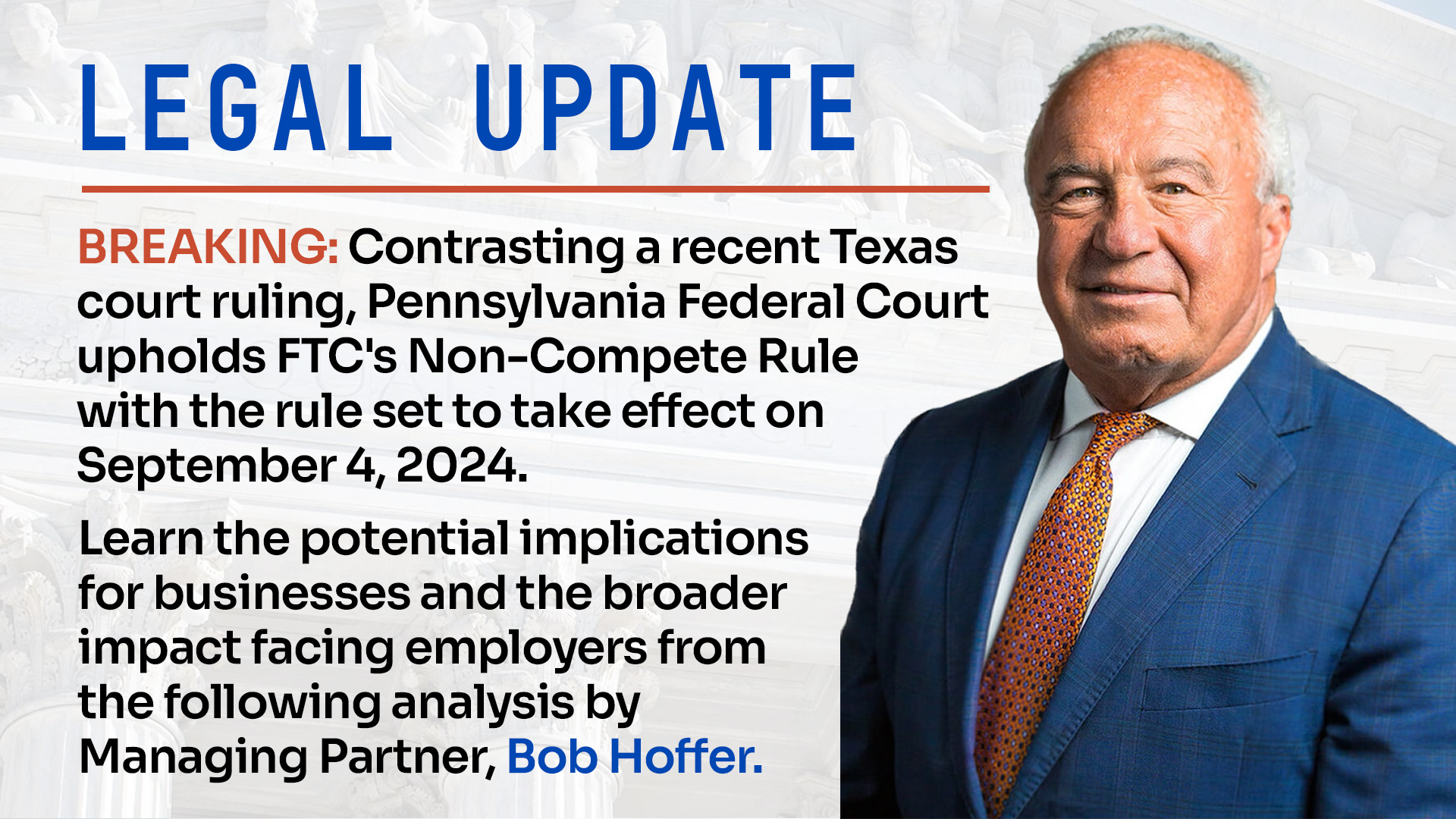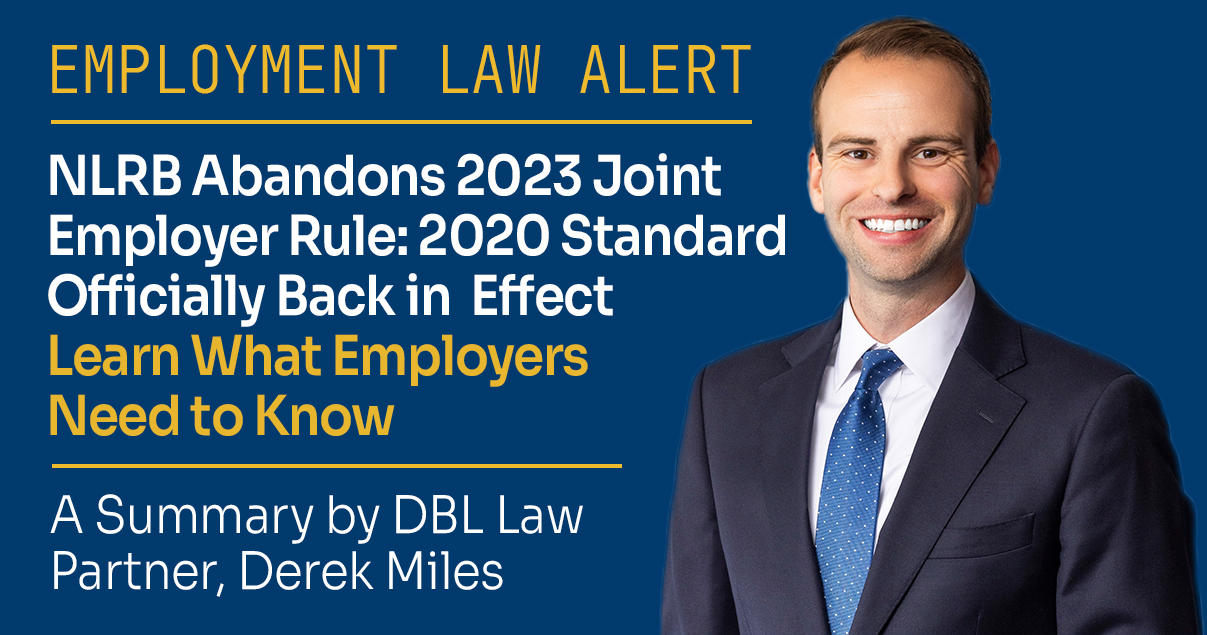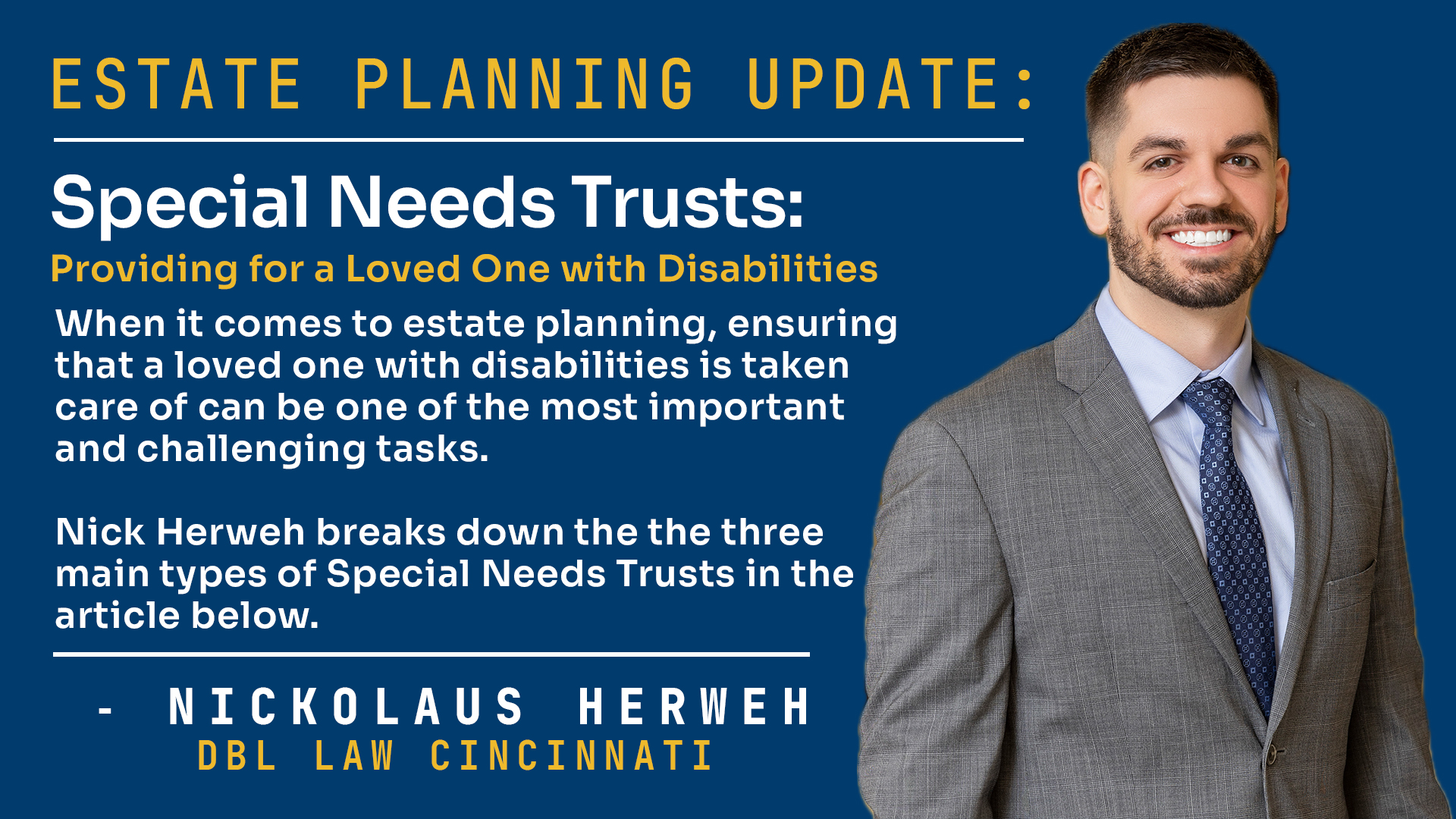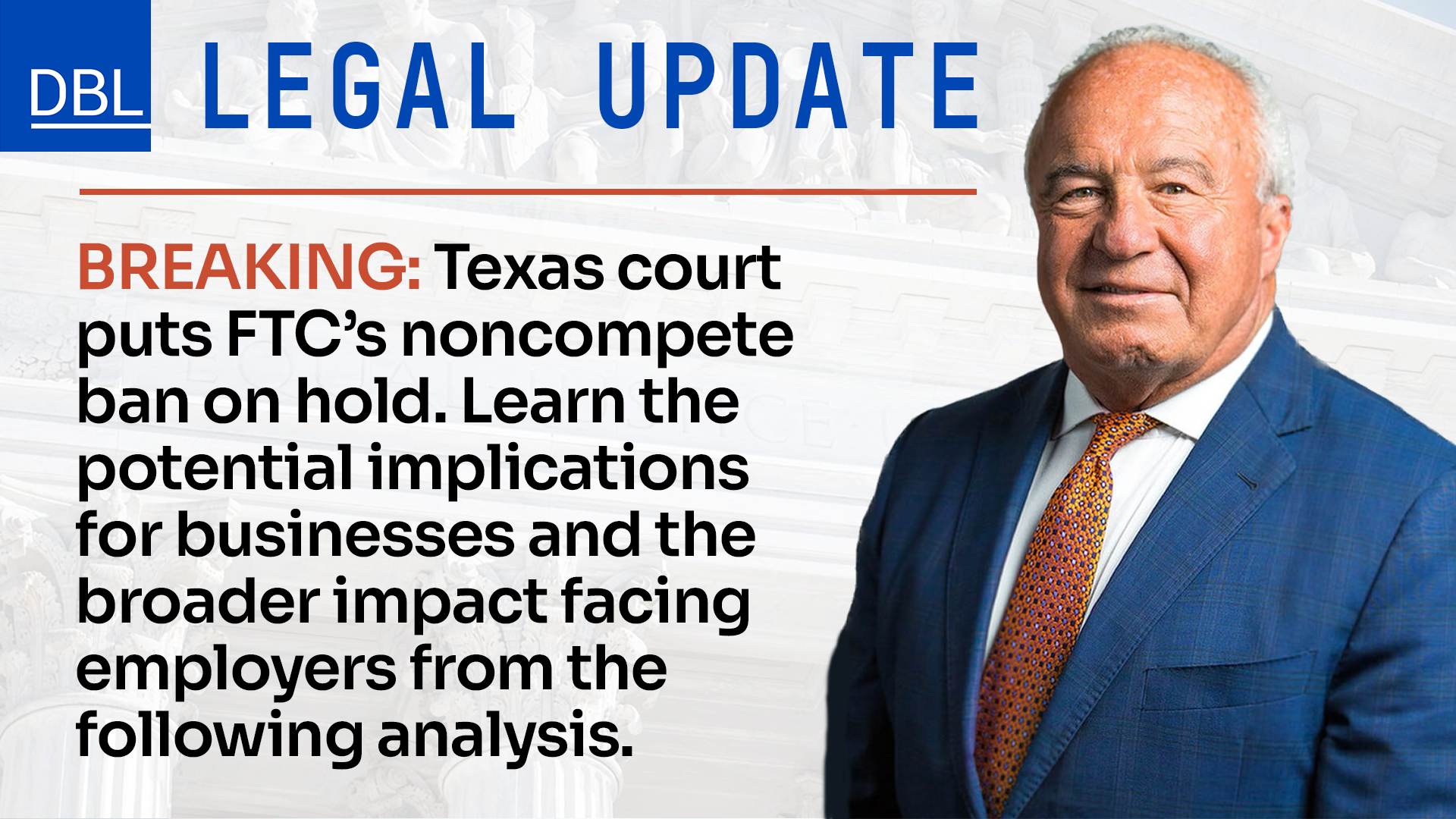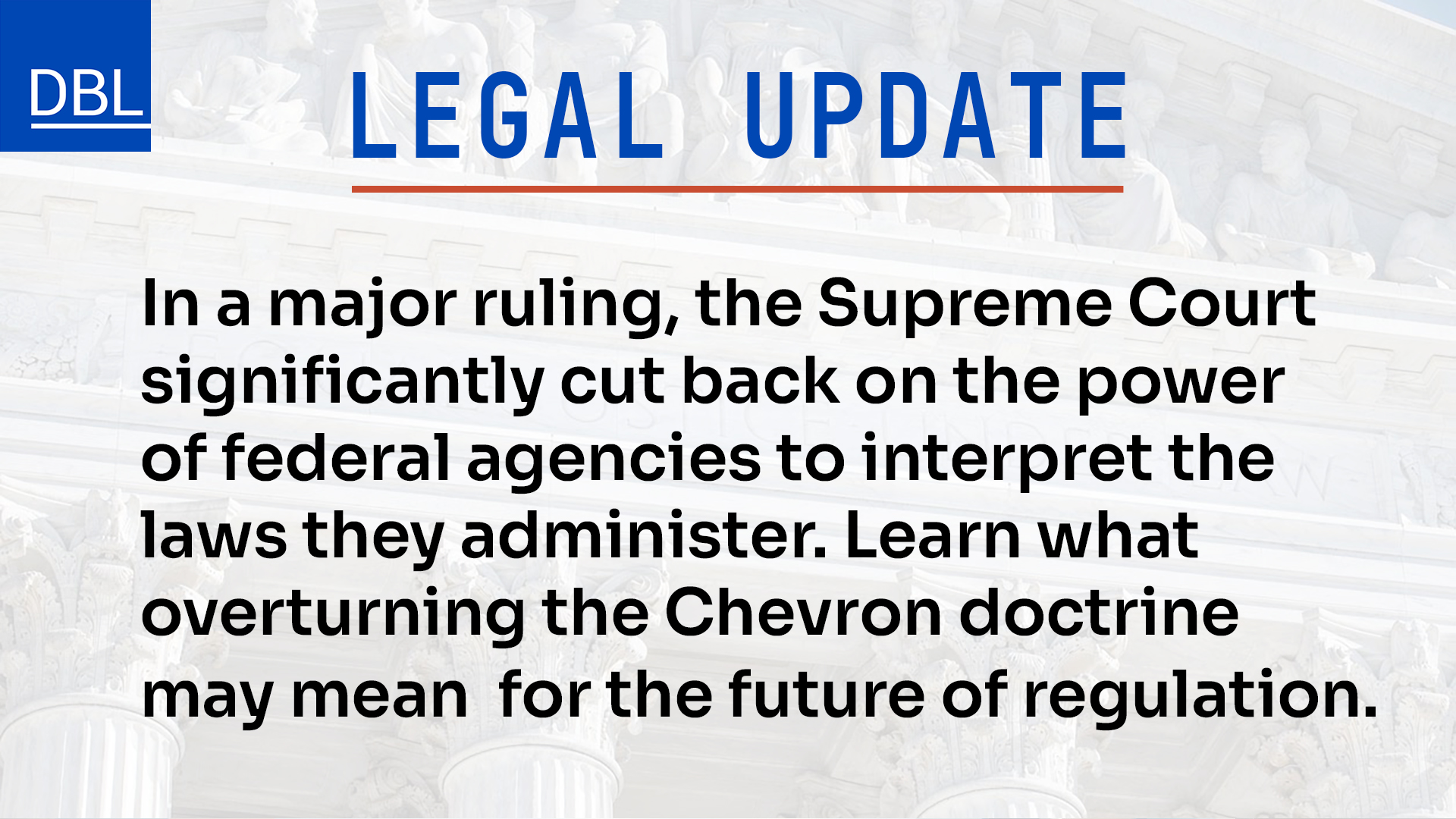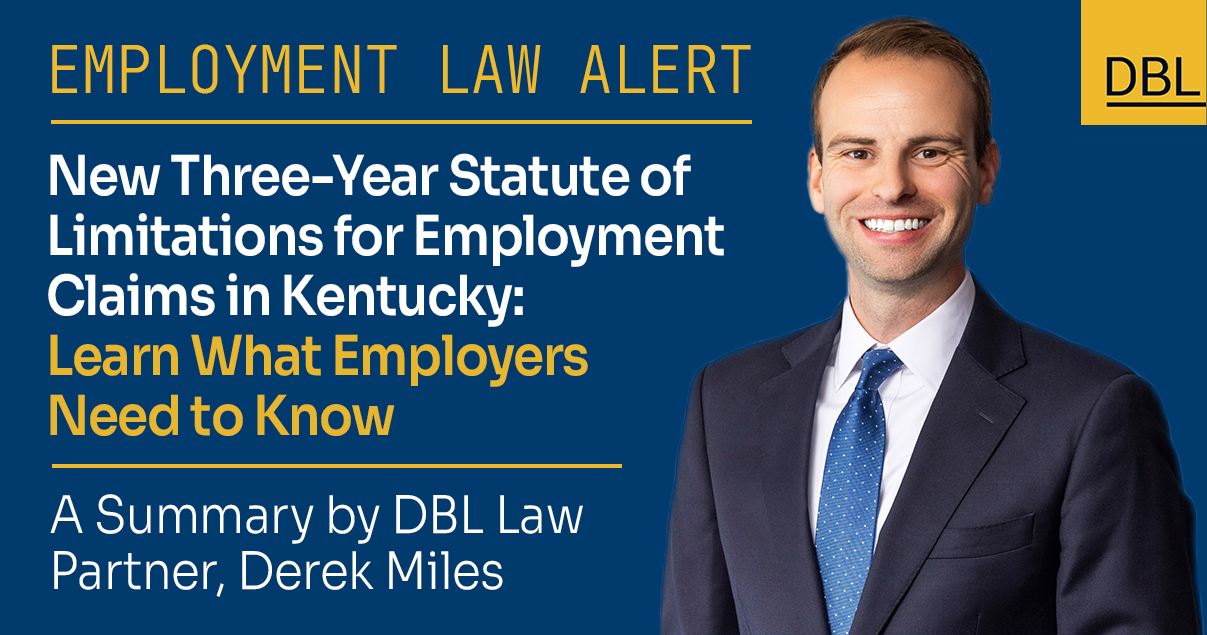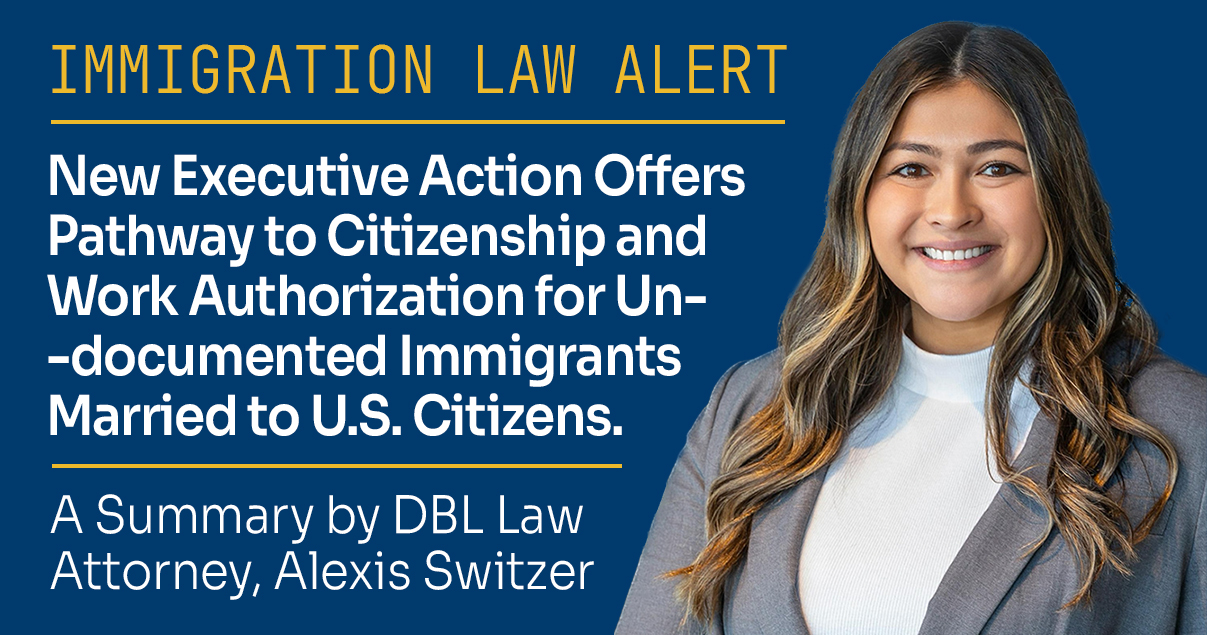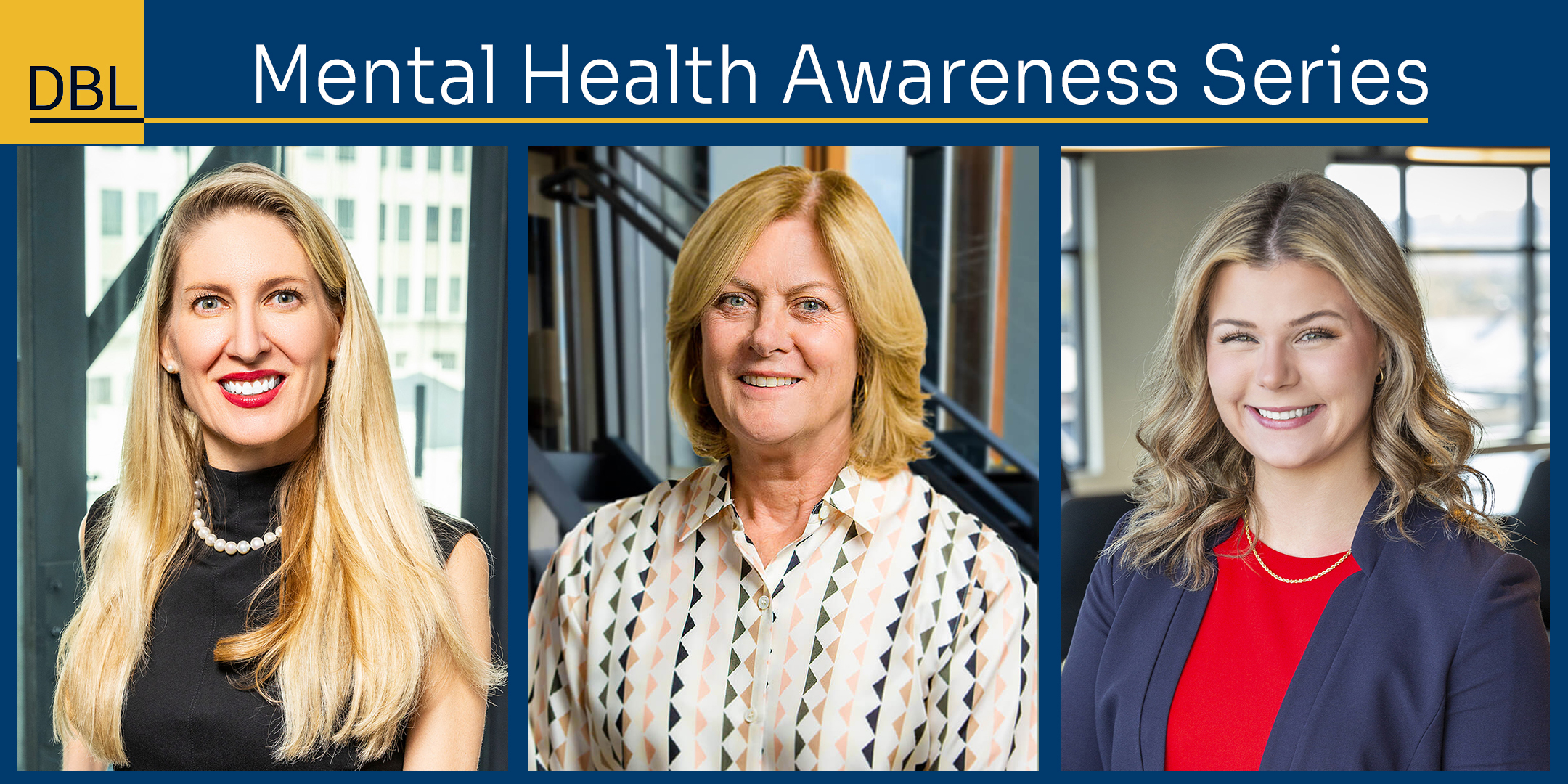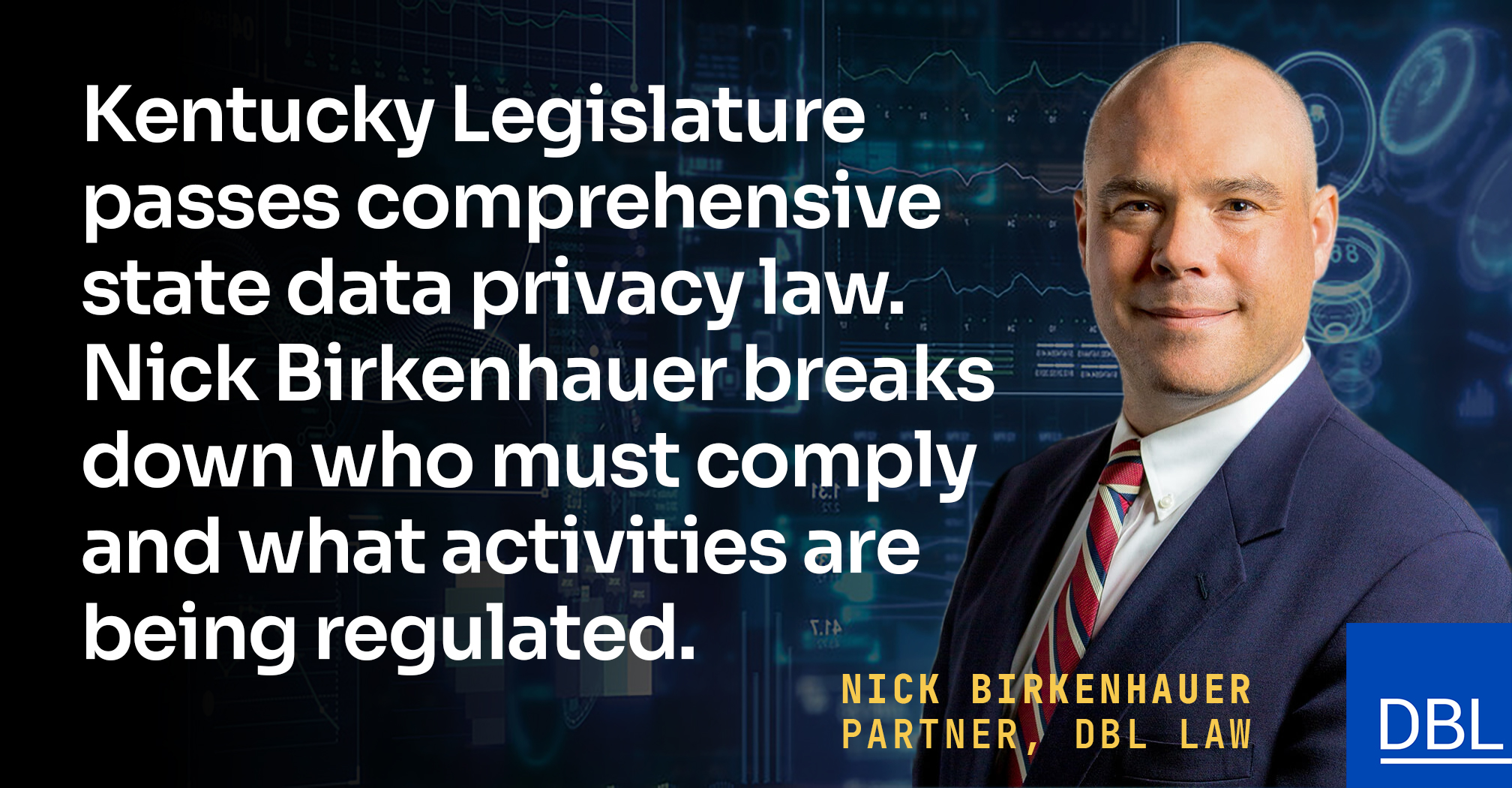
News & Events
-

Pennsylvania Federal Court Declines to Block FTC’s Non-Compete Rule
By Bob Hoffer, DBL Law On July 23, 2024, the U.S. District Court for the Eastern District of Pennsylvania, in the case of ATS Tree…
-

NLRB Abandons 2023 Joint Employer Rule: 2020 Standard Remains in Effect
Updated In a dramatic reversal, the National Labor Relations Board (NLRB) has decided not to pursue reinstating its 2023 joint employer rule, which a federal…
-

Made It Series – Summer Edition – August 22, 2024
About this event The Made It Series is a relaxed networking event featuring two great speakers you won’t want to miss. DBL Law’s Made It…
-

Special Needs Trusts: Providing for a Loved One with Disabilities
When it comes to estate planning, ensuring that a loved one with disabilities is taken care of can be one of the most important and…
-

Navigating Mental Health in the Construction Industry: Challenges and Imperatives
In the construction industry, where accelerated timelines and fierce competition are the norm, the pressure to deliver projects on time and within budget is immense.…
-

Federal Court Partially Blocks FTC’s Noncompete Ban: Implications for Businesses
By Bob Hoffer, DBL Law A recent ruling from the U.S. District Court for the Northern District of Texas has put a temporary hold on…
-

Legal Update: Supreme Court Overrules Chevron Doctrine
On Friday, the Supreme Court significantly limited the power of federal agencies to interpret the laws they administer, ruling that courts should rely on their…
-

New Three-Year Statute of Limitations for Employment Claims in Kentucky: What Employers Need to Know
Beginning on July 15, 2024, employees will now have three years to bring claims under the Kentucky Civil Rights Act and Kentucky’s wage and hour…
-

Legal Protections for Undocumented Spouses of U.S. Citizens: A New Executive Action by President Biden
President Biden recently announced a significant new policy offering protections to approximately 500,000 undocumented immigrants married to U.S. citizens. This executive action represents one of…
-

Appeals Court Sides with Pharmaceutical Companies in 340B Case: An Analysis by DBL Law Partner David Dirr
In a significant ruling on May 21, 2024, the U.S. Court of Appeals for the District of Columbia upheld a lower court decision favoring pharmaceutical…
-

2024 Mental Health Awareness Month
May is Mental Health Awareness Month and we’re recognizing the crucial importance of mental wellbeing with a video series dedicated to sharing practical tips and…
-

Understanding the Kentucky Consumer Data Protection Act (KCDPA)
On April 4, 2024, Governor Andy Beshear enacted the Kentucky Consumer Data Protection Act (KCDPA), previously known as House Bill 15. This comprehensive legislation is…
Subscribe To Our Legal Insights
By submitting this form, you are consenting to receive marketing emails from DBL Law. You can revoke your consent to receive emails at any time by using the SafeUnsubscribe® link, found at the bottom of every email.


